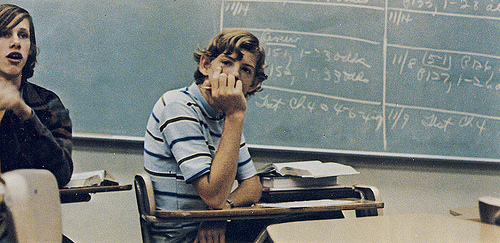Were you ever taught that the goal of technological advancement was to enable human endeavours to be achieved more efficiently resulting in a more leisurely lifestyle for all?
Computers will save us time. Automated machines will take care of all manual tasks. Instantaneous communications will mean life becomes less stressful and easier to manage. Do you remember hearing such things?
While the ideal sounded enticing, very few of us seem to be living the reality. Technology does enable us to be more efficient (sometimes) and achieve things once thought impossible. The trouble is the goal posts keep moving in terms of what we expect to get done.
Rather than settling for a fixed point of efficiency, achievement, and attainment, we are constantly increasing our expectations. For every minute of time or joule of energy technology saves us, we find ways of accounting for it with a never-ending list of yet more tasks and endeavours.
My theory is the level of an individual’s stress and busyness is directly proportional to the amount of technology they own and the frequency with which they use it (No empirical data to back it up yet, but maybe one day!).
Saturated Brains
A recent article in the New York Times cites research that suggests our obsession with being constantly stimulated by technology is actually not helping us.
The rise of multi-tasking afforded by mobile technology means we are able to access and exchange information every waking moment. As phones become mini computers, laptops as common as handbags, and screens are proliferating at an exponential rate, there is hardly a place where we can’t be reading, watching, browsing or chatting.
Yet while we are able to access and consume more information than ever before our brains may not be equipped to process and store it at the rate we are taking it in.
Researcher Loren Frank, from University of California, suggests “Downtime lets the brain go over experiences it’s had, solidify them and turn them into permanent long-term memories.” However when our brains are constantly stimulated “you prevent this learning process.”
While playing a quick game or watching a short video on your phone may feel relaxing and enjoyable, it may not be helping our brain.
By constantly bombarding their brains with digital information “people think they’re refreshing themselves, but they’re fatiguing themselves,” suggests neuroscientist Marc Berman, from the University of Michigan in the Times.
If this is the case what might it mean for today’s teenagers who are at the forefront of technologically fuelled stimulation?
Saturated Teenage Brains
This generation of teenagers are known as the Digital Natives because they have grown up in a world awash with a continuous stream of information and digitally generated stimulation. While there is a healthy debate about the competencies of digital natives, there is no denying that constantly interacting with technology is part of their behavioural DNA.
In a previous post I have discussed a survey of Australian Teenagers and their digital consumption. That survey found that the average Australian teenager spends more than 7 hours and 6 minutes a day using entertainment media. In order to achieve this they must be using more than one piece of technology at a time, that is they multi-tasking.
If brains need time to out to properly absorb and retain information, when do our teenagers get time to consolidate what they have learned?
This is a particularly vexed issue when we consider when teenagers are most stimulated by technology. The Australian survey found that it was after school, between the hours of 3-6pm that teens were most likely to be watching TV while surfing the Internet.
Mythical Multi-Tasking Teenage Brains
Many have suggested that because teenagers have grown up doing this they are natural multi-taskers. While they obviously do multi-task naturally, there are serious questions about how effective their efforts actually are.
A 2009 study by Stanford University found that people who multi-task don’t necessarily perform better. Researcher Clifford Nass says “Access to more information tools is not necessarily making people more efficient in their intellectual chores.” He said the results of the study demonstrated “cognitive performance declines when people try to pay attention to many media channels at once.”
Giving Teenagers Some Head Space
When we put it all together it appears teenagers are living in a world where they are constantly attached to headphones, and focused on multiple screens, resulting in their brains not having time to absorb anything and constantly doing two things poorly rather than one thing properly.
That’s the glass half empty view!
I am, however, not a pessimist about these matters. I am also someone who is constantly enthralled by the steady advance of technology. But there are some serious questions to ask in regards to looking after teens in our digital age.
How much digital stimulation is too much?
Should parents be enforcing electronic time out periods for their kids regularly and not just as punishment?
How do adults obsessed with being constantly connected develop and model healthy lifestyles to teenagers?
What impact do such considerations have when constructing a digital curriculum?
There is little doubt that Generation Z will be the most stimulated generation ever, yet what will be the cost of this for them? We all need space in our lives to switch off and chill out, yet we don’t seem to be modeling or encouraging this in our teenagers.
I would be interested to find out your thoughts or questions.
Image by biverson






